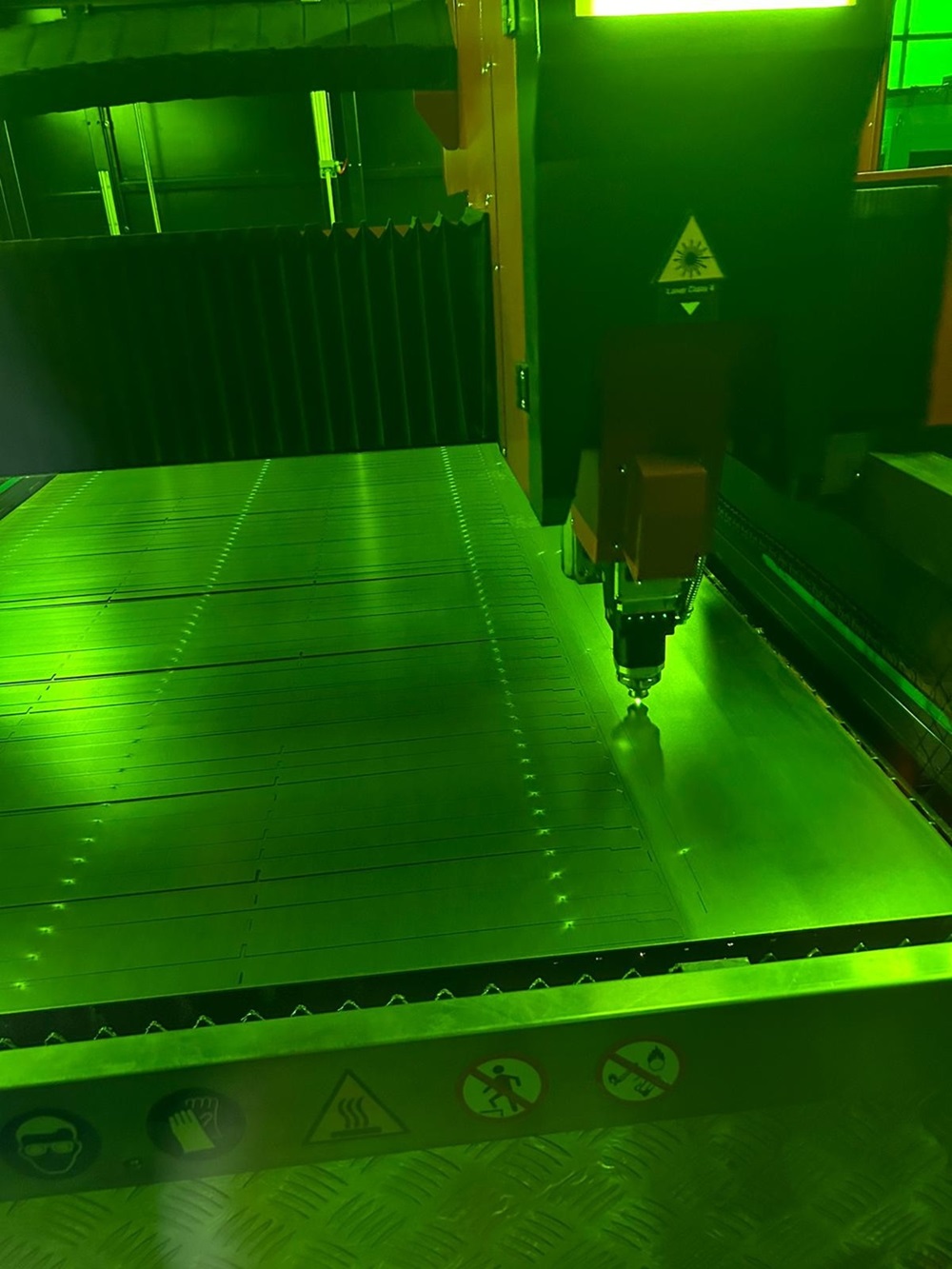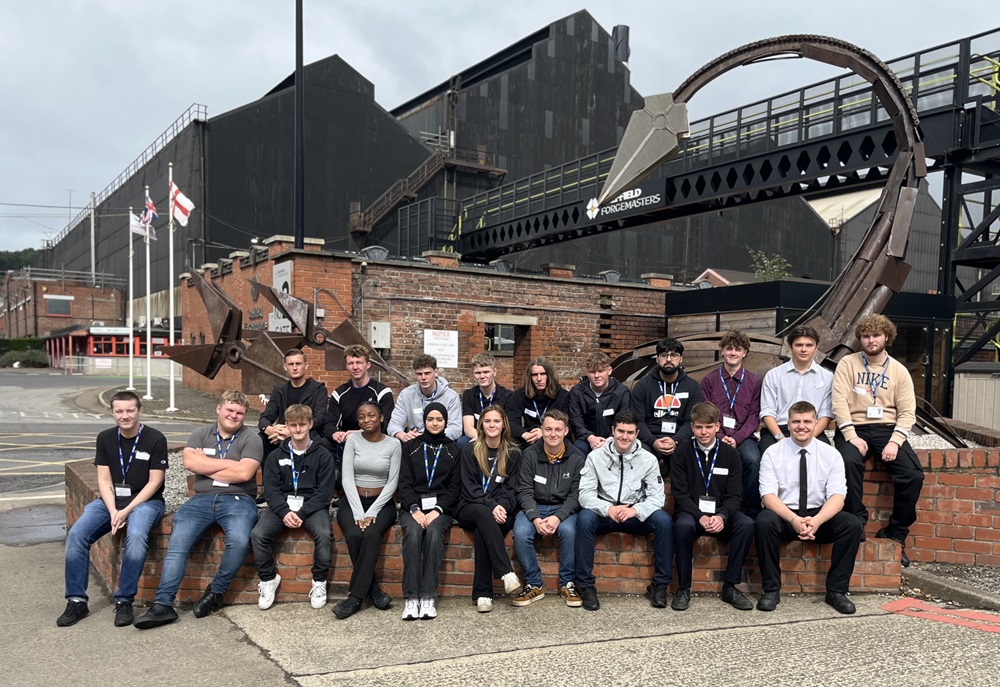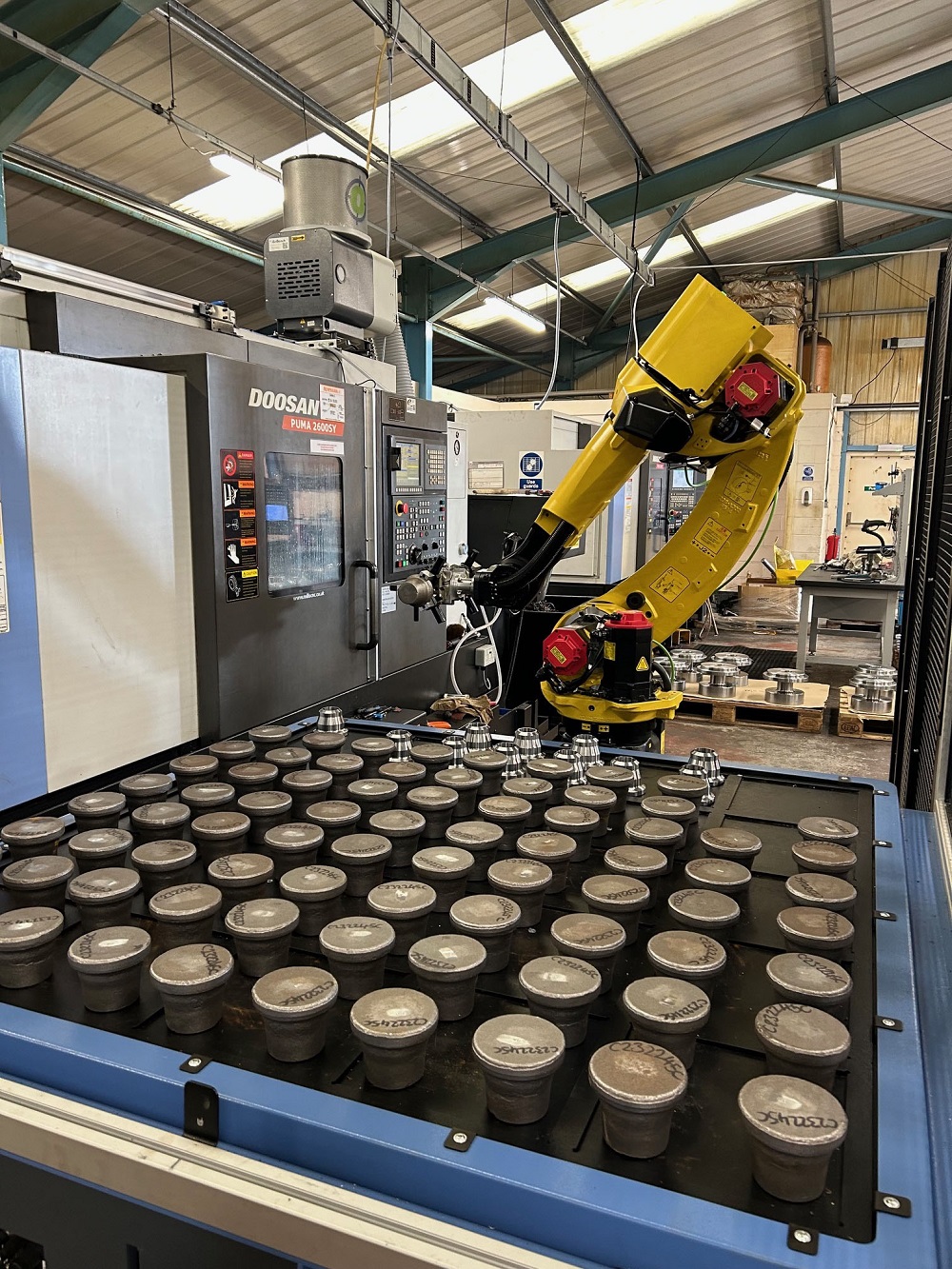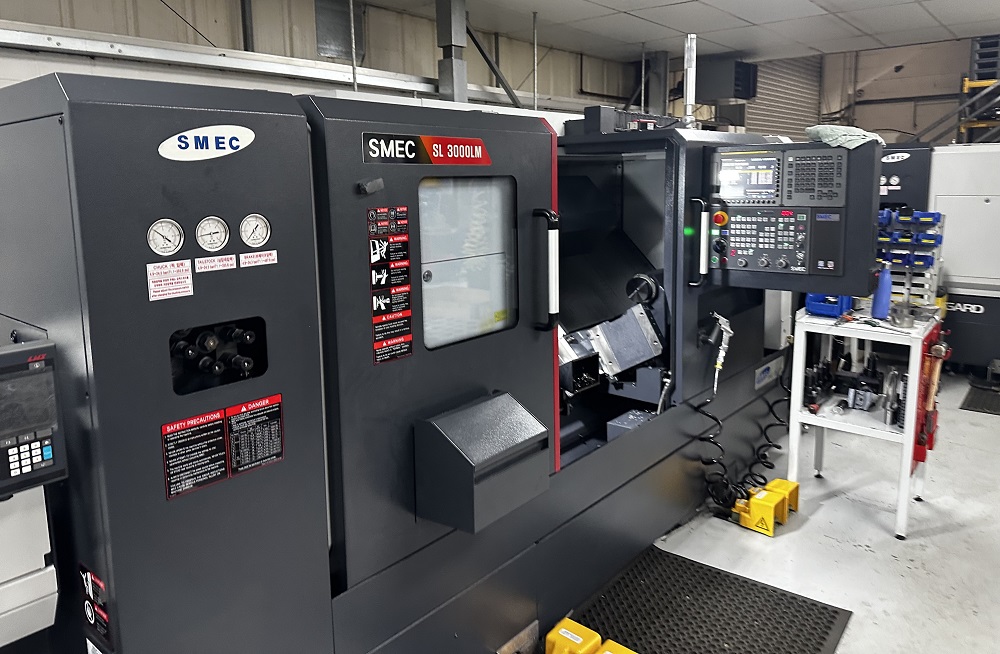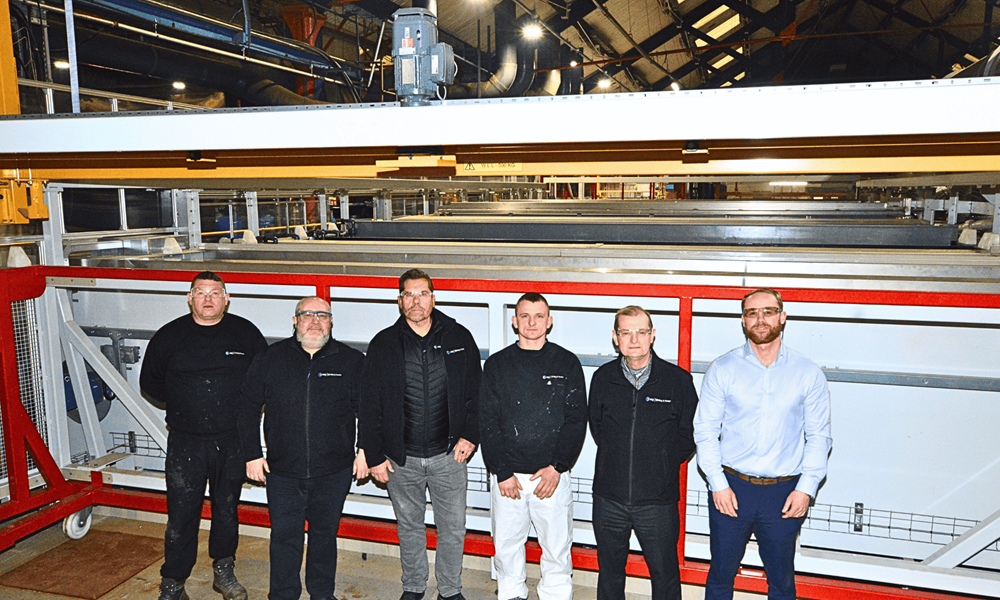When The Expanded Metal Co recognised that its costs for external subcontract laser cutting services were escalating in line with output, the Hartlepool-based manufacturer investigated the market for a fibre laser cutter to help manage costs and enhance process control. The solution arrived in the shape of a Lincoln Electric Linc-Cut 1530A 6 kW fibre laser cutting machine from Kerf Developments.
Recalling the situation, Ryan Pinder, operations manager and head of continuous improvement at ExMesh, says: “Our laser cutting costs were climbing, and production schedules worked on min-max order levels with our supplier. It had to change. We looked at 8 to 10 laser manufacturers and did our due diligence. Part of this included visiting the MACH 2024 exhibition, where we talked to a contact at Lincoln Electric, which was sharing a stand with UK agent Kerf Developments.”
He continues: “This was our first laser purchase, so we needed support and reassurance as we leapt into the unknown. The Kerf team put us at ease and emphasised their level of support, and they couldn’t have been more supportive during demonstrations. We switched our original requirement from a 3 kW to a 6 kW laser cutter to future-proof our business, and Kerf introduced us to the Lincoln Electric Linc-Cut 1530A.
“While we have to build labour and consumable costs into our ROI projections, we’re already using the machine for much more than originally intended – meaning it will pay for itself in the very near future.”
Concludes Pinder: “With the Linc-Cut 1530A, we’re now in charge of our destiny, and we’re already receiving more bespoke subcontract jobs from existing customers.”
More information www.kerfdevelopments.com






